See You In Scotland?
Posted by: Loren Coleman on January 26th, 2010

I shall be speaking at this upcoming event:
2010 Big Cats in Britain Conference.
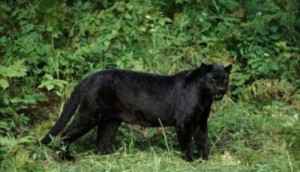
June 4-6, 2010, Glasgow, Scotland.
Speakers include:
Loren Coleman (USA)
Ruby Lang & Mike Williams (Australia)
Di Francis ( Scotland)
David Hetherington (Scotland)
Jonathan McGowan (England)
Shaun Stevens (Scotland)
Additional speakers to be confirmed.
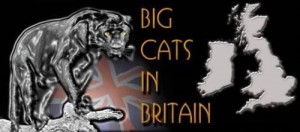
Tickets for Friday night, Saturday and Sunday £40. One day £25.
Full details can be found here.
Then, in the following week, I will be traveling to Loch Ness.
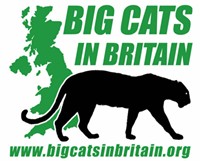
About Loren Coleman
Loren Coleman is one of the world’s leading cryptozoologists, some say “the” leading living cryptozoologist. Certainly, he is acknowledged as the current living American researcher and writer who has most popularized cryptozoology in the late 20th and early 21st centuries.
Starting his fieldwork and investigations in 1960, after traveling and trekking extensively in pursuit of cryptozoological mysteries, Coleman began writing to share his experiences in 1969. An honorary member of Ivan T. Sanderson’s Society for the Investigation of the Unexplained in the 1970s, Coleman has been bestowed with similar honorary memberships of the North Idaho College Cryptozoology Club in 1983, and in subsequent years, that of the British Columbia Scientific Cryptozoology Club, CryptoSafari International, and other international organizations. He was also a Life Member and Benefactor of the International Society of Cryptozoology (now-defunct).
Loren Coleman’s daily blog, as a member of the Cryptomundo Team, served as an ongoing avenue of communication for the ever-growing body of cryptozoo news from 2005 through 2013. He returned as an infrequent contributor beginning Halloween week of 2015.
Coleman is the founder in 2003, and current director of the International Cryptozoology Museum in Portland, Maine.






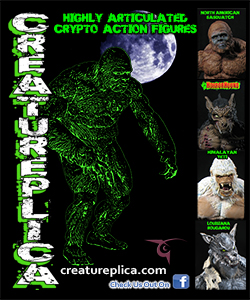
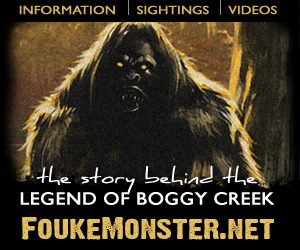
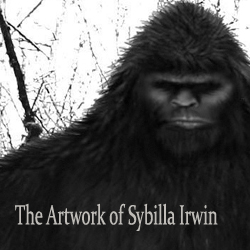

Hi Loren, I’m over the pond in Scotland and would just like to say that I hope you enjoy your visit over here. Weathers cold and damp just now.
I’m in Fife (North East Fife) and we’ve had many big cat sightings around this area, in fact I’m sure there’s a big cat investigator in Balmullo.
Also a farmer I know had a sheep killed in a barn by what is believed to have been a big cat, if you mail me I’ll send you his details or if you check the Archives of the St Andrews Citizen or the Courier (local papers) I’m sure you would find all the details there is on our big cat incidents.
Wish I could be there, Loren, but of course…
Wish to visit Scotland one day myself.
I think I have a smack of “Scot” in me, I think.
And I love any kind of Mystery Cat sightings.
Good traveling and have fun.
Maybe you could mention to the organisers if they wish to be called Big Cats in Britain, they should remover Ireland from the upper and Northern Ireland from the lower templates. While Northern Ireland is currently legally part of the U.K. no part of Ireland has ever been included in the term Britain. These are two separate islands geographically, Britannia and Hibernia, or Britain and Eire, Ireland, Land of the Goddess, what you will… never Britain and Britain politically or geographically for the last several millennia.
-An Irish Cryptomundian
Dear loopstheloop…
Well, I have no influence over the organizers of this event, but if you ask me (since my mother’s family are McClains), I frankly don’t even feel Scotland is part of Britain either!!
Scotland Forever!
I’m in Greenock, Inverclyde area, only 25 miles from Glasgow. There has been a significant number of ‘black panther’ sightings only a few miles from here over the past few years, one which took place at the Amazon warehouse car park, where a member of staff filmed a large black panther like cat wandering among the cars. Will put dates in the diary and hope to be there if possible. Loren, are you giving any talks on Nessie while you are visiting Loch Ness?
@loops.
Whilst us humans like to designate differences to certain parcels of land, the cats themselves take no notice of borders and jingoism, and happily wander wherever they wish.
Hence the reason that several big cats released a few years ago when Northern Ireland caught up with getting a Dangerous wild animals act, (unlike Eire who still don’t have one), are currently wandering the border area of the two countries.
I know that the BCIB deliberated long and hard with regards to how they depicted both Northern Ireland and Eire on the website, and it was decided that they would be included on the same section, after all, the cats have no interest in the politics of man.
Good man, Loren! Free Scotland!
HighlandTiger, your point about cats ignoring the boundaries of man would be more valid if the boundary in question weren’t the Irish Sea, my good fellow, as it’s the work of forces greater than us.
Éire is simply the Gaelic for Ireland, and refers to the whole island. But if you want to include either the 6 counties of Northern Ireland or the whole island of Ireland for accuracy’s sake the name would need to change to Big Cats in Britain and Ireland, for example.
I’d be interested to know which specific counties of Ireland these felines were confining themselves to, and why, though.
Keep the politics out of this please, many people in N Ireland will disagree with you, who do we please then. The animals do not recognise borders or the follies of man, and we will keep it that way. Next we will be taking Wales out then Scotland, then Yorkshire!
Well said Highland Tiger, whoever you are 🙂
I have my own political views, but I certainly will not be using them in this subject.
Oh and kilts will be worn on the Friday evening!
The cats are not confining themselves to a particular county, they were released in the North, we found one in Monaghan. The BBC even made a documentarty about it, that is no secret.
The Irish sea proves no boundary to these animals, it is man that brings them across! And if you look at the website, our books etc. you will see that we do distinguish between names and often say Big Cats in Britain & Ireland.
Yours is one side, we get emails from the other side telling is to take off the Shamrock, do not use the Irish flag etc. etc. Politics is one thing we will not submit to here.
I felt for a minute like I was on “Braveheart” while reading some of the comments here.
Yes, PLEASE let’s keep the politics out of this.
Let’s stick to the discipline of Cryptozoology and reports, please.
scotscats, again, you seem to miss the point, which is geographical, and NOT political.
Ireland and Britain are two different geographical islands- anybody who disputes that has merged geography and politics, and has got the former wrong. I don’t care about anybody’s political sensibilities, only about accuracy and cryptozoology being taken seriously- and that is not facilitated by people confusing the issue and misusing the word Britain in the title of this supposedly academic and scientific discussion, which detracts from any serious work that might be done by this organisation.
You seem to be very pedantic loops………….with maybe a hidden agenda
:o)
The organisation is called Big Cats In Britain, because that is what they mainly research. The majority of the members live in England, Scotland and Wales. However there are two members who research sightings in Ireland, along with a handful of members who cover sightings in Europe, Australia, New Zealand and the USA.
Are we now to change the organisation’s name to Big Cats In Britain, Ireland, Belguim, France, Germany, Italy, Spain, Netherlands, Australia, New Zealand and USA, just for you.
Somehow I don’t think many people who enjoy putting in the web address http://www.bigcatsinbritainirelandbelguimfrancegermanyitalyspainnetherlandsaustralianewzealandandusa.org, and I don’t think the BCIBIBFGISNANZUSA quite rolls off the tongue either.
99.999999999% of the British population know what is meant by the name. I think that’s good enough.
Oh and just for the record loops.
The name Britain is derived from the Latin name Britannia. The Latin term derives from the Greek forms Prettanike or Brettaniai, which originally referred to a collection of islands with individual names, including Albion, the oldest known name for Great Britain. The name was first recorded by the ancient Greek Pytheas around 320 BC.
Ptolemy also used the name Mikra Brettania when describing what is now known as Ireland,
So as you can see, the word Britain has been used to describe all the islands for thousands of years. Well before your time I believe.
Hehe Loren.
Freedom for England I say, especially when we in England are being run by an unellected Scotsman called Gordon Brown.
Seriously, this sounds like a great bash coming up. I hope you enjoy your visit. But be warned. June is usually a wet month in Scotland so I hope you bring your brolly with you.
England is much nicer at that time of year. Boom boom.